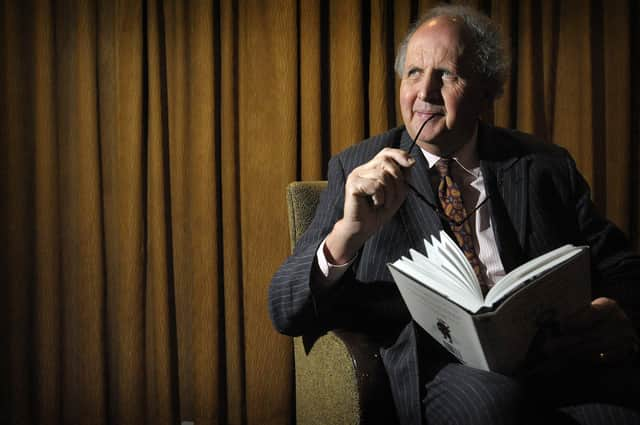Libraries are one of our greatest public goods, on a par with our hospitals and schools - Alexander McCall Smith


I have an equally vague memory of nearly been run over by a car during a sandstorm – not an everyday memory of childhood. Both of those memories were, in their individual ways, traumatic; not so my first memory of a library. That glows with happiness.
I was at school, and very young. The library was in a narrow room with a brown door that was opened at set hours to allow us to venture in and select a book. I remember the smell – a Proustian, rather dusty memory of the smell that books have when stored in numbers. I remember the colour and feel of the books I chose to borrow and the thrill of walking out with a whole new book by Richmal Cromptom. I read every one of her William books. I moved on to Jennings and the Secret Seven. Then there was Arthur Mee’s Children’s Encyclopaedia, and other books that revealed the world in all its glories – the bridges and rockets and deep-sea creatures; Robert the Bruce and Joan of Arc and President Lincoln! Such wonderful stuff and all there at your fingertips, not needing to be paid for, a gift.
Advertisement
Hide AdAdvertisement
Hide AdSince those early experiences, libraries have been for me an outpost of heaven. A library expresses everything for which we yearn: peace, sanctuary, and, in spite of their famous silences, companionship. On entering a library one is admitted to conversations that may last a lifetime with people you may never have met but who may become as familiar as any close friends.
Since libraries may be places of pilgrimage, their architecture and ambience are important. In the course of my career, I have visited and worked in libraries of every shape and size. I once spent a month working in a library in Rome, housed in an elegant villa. In Reggio Emilia I spent a week working in the private library of a famous criminal lawyer. Alongside the volumes of law reports were pictures of my host’s clients, some of them caged, as criminal defendants in an Italian court may be. I visited the Library of Congress in Washington, where the murals depict the merits of paying attention to the advice of philosophers. The staff showed me the inner workings of this astonishing library, which receives each day an unimaginable number of items.
And then there are our own great libraries in Scotland, particularly the National Library, a copyright library, and our system of public libraries throughout the country that share the vision of Andrew Carnegie whose belief in libraries came to be translated into stone and mortar. These are one of our greatest public goods – on a par with our hospitals and schools. The principle they embody is one we should never lose sight of – these are for everybody, these are sacred places, to be cherished and supported, whatever the cost. If we don’t have places of learning and culture, we have nothing.
The Joy and Light Bus Company and The Pavilion in the Clouds by Alexander McCall Smith are both available now, in all good libraries.
A message from the Editor:
Thank you for reading this article. We're more reliant on your support than ever as the shift in consumer habits brought about by coronavirus impacts our advertisers.
If you haven't already, please consider supporting our trusted, fact-checked journalism by taking out a digital subscription.
Comments
Want to join the conversation? Please or to comment on this article.
